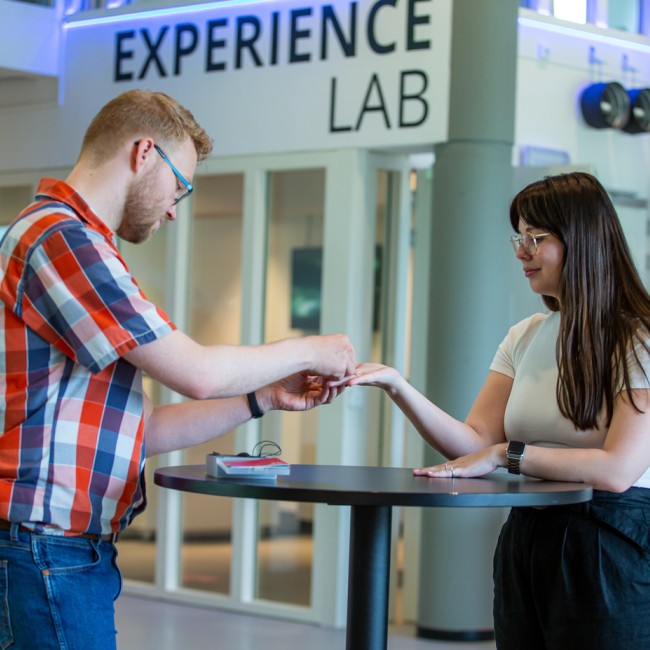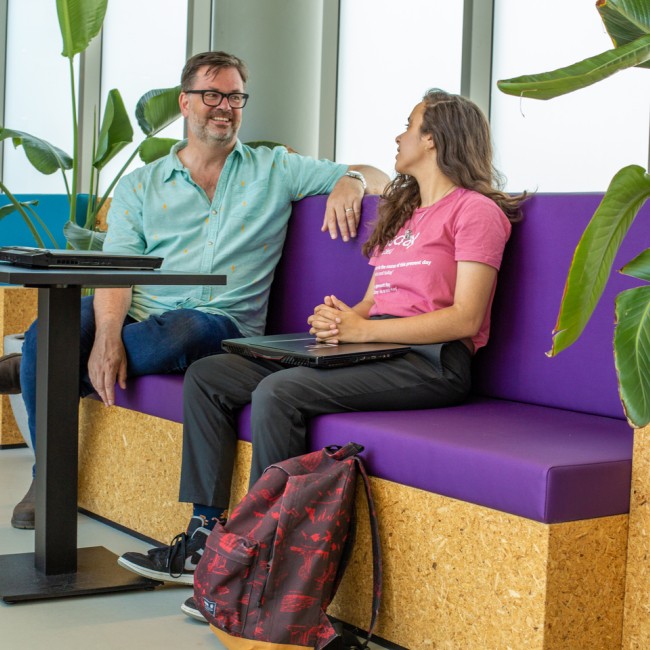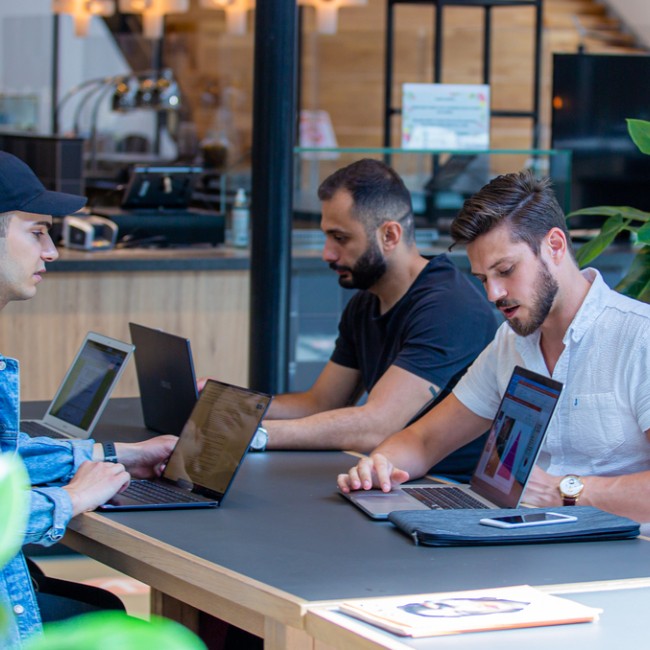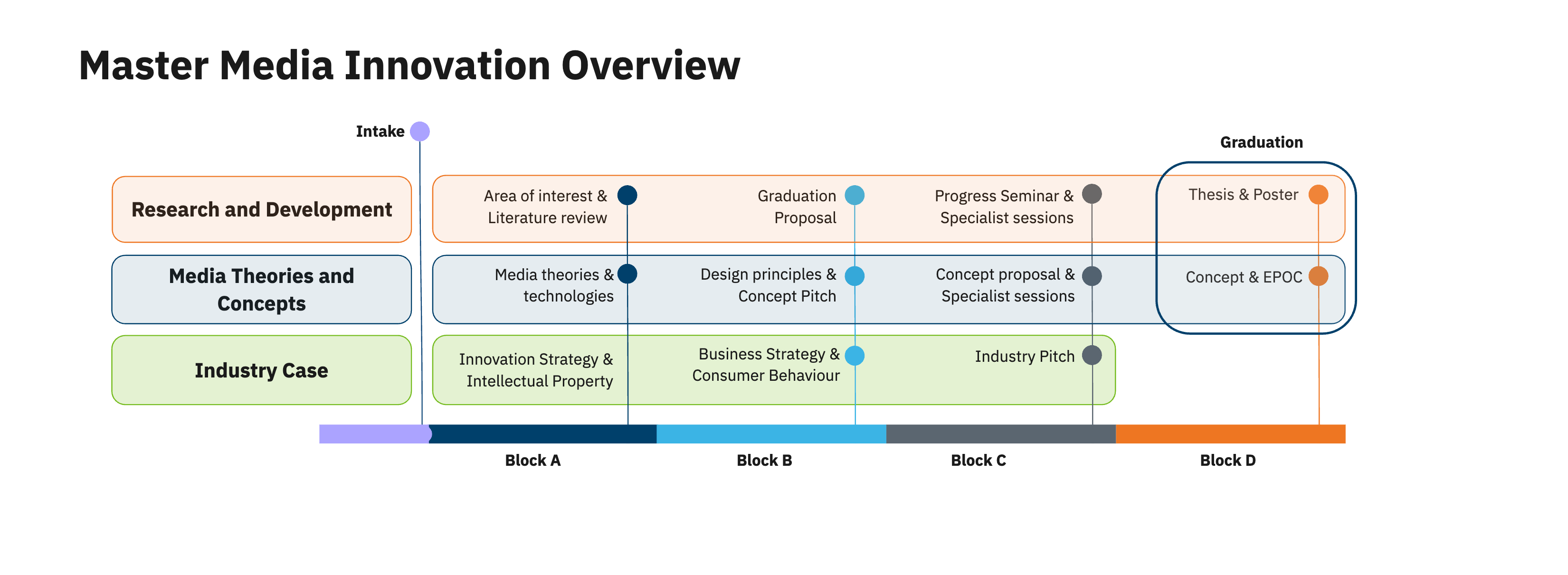Come and meet us
Walking around on campus is the best way to truly experience BUas. Sign up for one of the upcoming events or activities.
Why this study programme at BUas?
- Study innovation, design thinking, and cutting-edge media
- Industry-experienced lecturing team, cooperation with international partners
- Successfully blends theory and practical application
Study overview
Course content
The Master Media Innovation is an international programme with lecturers from a number of academic and commercial disciplines in the field of digital media. The programme has a unique, multidisciplinary approach; training you to acquire analytical skills and look beyond the surface of digital media, while encouraging you to apply those skills practically in innovative media concepts.
- Focus
The Master in Media Innovation offers students a programme that trains them to systematically obtain the strategic skills necessary to become innovators. You will learn to look beyond the surface of digital media to reveal some very decisive core processes (ontologies), understand the way in which they function, and obtain the ability to apply these skills in creative, innovative and future-orientated media products.
- International network
The Master in Media Innovation is a highly international programme; not only a large percentage of our students and lecturers are international, but you will also come into contact with international researchers and industry partners during the programme. The media industry is a global industry, and graduates of the Master in Media Innovation are equipped to work in that industry.
The programme lasts 12 months and consists of four blocks. Throughout the year, you will go through three learning paths to work towards your graduation project (15 ECTS credits). More information on these components can be found below:
- Research and Development
The purpose of this learning path is twofold. First, it aims to provide you with a thorough understanding of research methods. You will also acquire the general knowledge and practical skills needed to conduct practice-based research at the master's level and apply research insights to create innovations. Second, it seeks to offer a theoretical foundation in communication theory, scientific skills, and theory-based argumentation in general. These two objectives are intertwined throughout the study programme.
Throughout this learning path, you will work towards your master’s thesis with each assignment, culminating in your graduation.
An innovator who has completed this master's in media is able to initiate, design, and manage complex processes. Technology, content, design, business, and market analysis are optimally integrated. Media innovators anticipate future market needs and timing, and translate analytical insights into creative product development.
- Media Theories and Concepts
This learning path introduces you to the field of (contemporary) Media Studies and Media Theory. Media Studies is described as an academic interdisciplinary field of study that focuses on the content, history and effects of different media. The interdisciplinary approach is reflected in the various theoretical perspectives and topics covered in this module, including but not limited to transmedia, philosophy of technology, ethics, game design and narratology.
In addition, you will be introduced to several innovative (media) technologies during this learning path. You will learn how these come about and how they can be used in the media industry. There is also an introduction to design techniques and creating prototypes to develop your own innovative concept for the graduation project. This is developed according to three pillars: methods for understanding and identifying user requirements; principles for creating a prototype user interface and interaction for the proposed concept; and the aspects related to the technical feasibility of the proposed concept. During the learning path, we also offer deep-dive sessions for specific technologies and concepts, depending on student needs.
The learning path assumes that students have no technical or programming knowledge and is therefore suitable for students from all fields of study.
- Industry case
The Industry Case learning path revolves around the knowledge, tools and practical insights needed when dealing with topics such as intellectual property, strategy, innovation, entrepreneurship and consumer behaviour. Besides general concepts and topics, the focus is on specific characteristics of the media and entertainment industry.
As a significant part of the course material has strategic content, the Master Media Innovation also uses a case study from the media industry. Each year, a different client from the field is selected and students work on a practical case. This gives students the chance to use and apply the theory they have learned in the programme to solve real, existing problems. Each year there is a unique case, but the core concept - using the theories and skills introduced to solve essential issues and propose conceptual solutions - remains a constant factor. The industry client is involved in both defining the problem statement of the case, providing formative feedback, and assessing the students' final work. Previous clients have included Banijay, DPG Media, IBM, KLM and Samsung.
- Graduation project
In the final part of the Master Media Innovation, students write a master's thesis on a theme of their choice, reflecting on the knowledge they have gained. This thesis, together with a research poster, is assessed by a panel and concluded with a defence. In addition, in the product-oriented graduation assignment, under supervision, they develop their own innovative media concept and a prototype of the innovative idea. These concepts are presented to lecturers and professionals during an industry day.
Teaching method
The programme lasts 12 months and consists of four blocks comprising a mix of primarily individual and a few group assignments, a practical assignment, and a graduation project. The graduation project consists of a thesis and an product-based graduation assignment.
For the full-time variant, there are two to three class days per week on the Breda campus; for the Executive it concerns two to three evenings per week online.
This master’s has a study load of approximately 40 hours per week.
Study load and coaching
The Master Media Innovation is a one-year, full-time programme. The total study load is 60 ECTS credits. With 1 ECTS credit being equivalent to 28 hours of study, this means that the programme has a study load of approximately 40 hours per week.
- A typical week
Below, you will find an example of a typical week. Keep in mind that your timetable may vary each week, and this example serves as an indication.
Monday
- 10.00-12.00: Media Theory lecture
- 12.00-13.00: Lunch
- 13.00-16.00: Media Technology lecture
Wednesday
- 10.00-12.00: Research & Communication lecture
- 12.00-13.00: Lunch
- 13.00-16.00: Research & Communication lecture
Friday
- 10.00-12.00: Media Theory lecture
- 12.00-13.00: Lunch
- 13.00-16.00: Media Business lecture
Sometimes you have a feedback session on Tuesday or Thursday.
We offer you a small-scale study environment, as the number of students involved in this master is limited. The programme coordinator is always available to help you with day-to-day issues. Additionally, if you wish to discuss personal problems that may be affecting your life as a student, you can turn to the student counsellor.
Student well-being
BUas encourages and helps you to make the most of yourself, whatever your circumstances. Maybe you have a chronic illness, are a family carer, a competitive athlete, or juggle your studies with running your own business? Our study coaches, student counsellors and student psychologists are here to help. Do you need extra support or advice? Or extra facilities? Then take a look at the options here.
Professional versus academic master’s degree
The level of education in both forms is the same. Both the professional master's and the academic master's degrees are hard work and the number of ECTS credits is the same. Yet there are some differences.
The biggest difference lies in the nature of research undertaken. A professional master's degree focuses mainly on practical application within the professional realm. In contrast, an academic master’s degree emphasises the cultivation of research skills, theory and knowledge development. So, are you more practice-oriented? Then a professional master’s would be a prudent choice. Conversely, if theoretical exploration appeals to you, an academic master’s would likely suit you better.
What makes this study programme unique
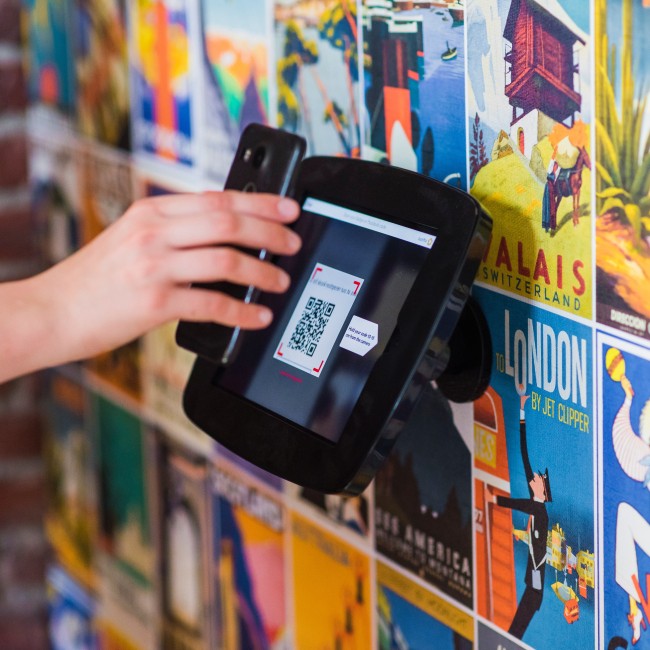
Industry Case
The Industry Case assignment gives you the chance to apply your MMI knowledge to impactful projects for high-profile clients like KLM, Samsung, Blue Circle, 4DR Studios, Banijay Productions, and others.

Lecturers with real-world expertise
Deniz Kurt is a lecturer in Media Technologies, focusing on emerging technologies, including AI. With two master’s degrees—one in Media and Culture Studies and another in AI and Creativity—she brings a diverse skill set to her teaching.
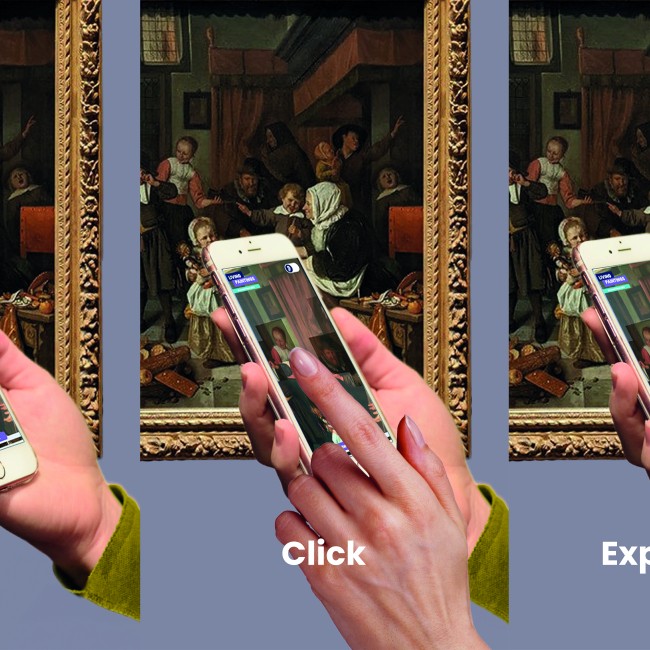
Deepfake technology and AR bring paintings to life
In her master's thesis called ‘The Living Paintings Tour’, alumna Miriam Verkerk explores innovative ways children can experience art interactively using deepfake technology and augmented reality (AR).
Admission & application
What are the admission requirements?
Students are eligible if they have a bachelor’s degree in the field of Business Administration, Media Studies, Communication Studies, IT, or another media-related field.
Information about admission requirements
What does this study programme cost?
In the academic year 2025-2026 the statutory tuition fee for master's programmes is €2,601. In addition to the tuition fee, you will need to take into account additional costs for the purchase of study materials such as textbooks.
How can I apply?
If you meet the admission requirements, you can apply for this study programme. You can apply until 15 August, but you are encouraged to apply before 1 July because of the summer holidays.
Find out if this study programme suits you
Within five minutes you will find out if our small-scale study environment is the right fit for you!
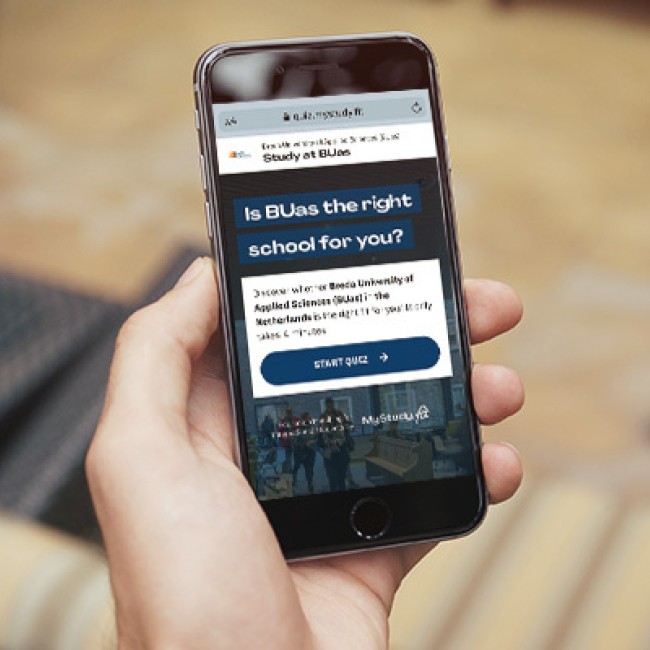

The best fit for my passion and curiosity in media & innovation

I was looking for depth and creativity

Incredibly innovative work
What can you do after your studies?
The Master Media Innovation offers you the required qualifications for a range of media positions including, but not limited to: product owner, innovation lead, creative lead, digital marketer, creative consultant, digital strategist, and digital brand strategist. After your graduation you are entitled to the degree of Master of Arts.

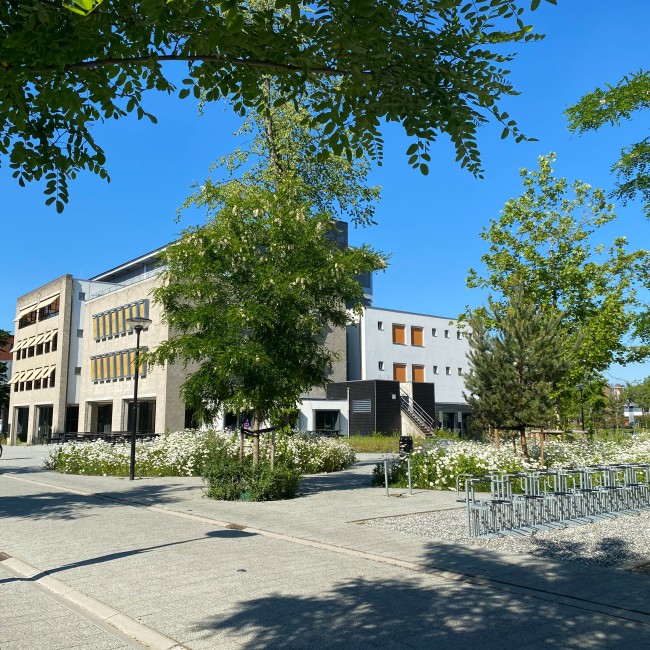
Virtual campus tour
Have a virtual look and discover the Frontier building where you’ll be studying and what more the campus has to offer.

Get inspired!
Read more about projects, research and insights in the media industry.
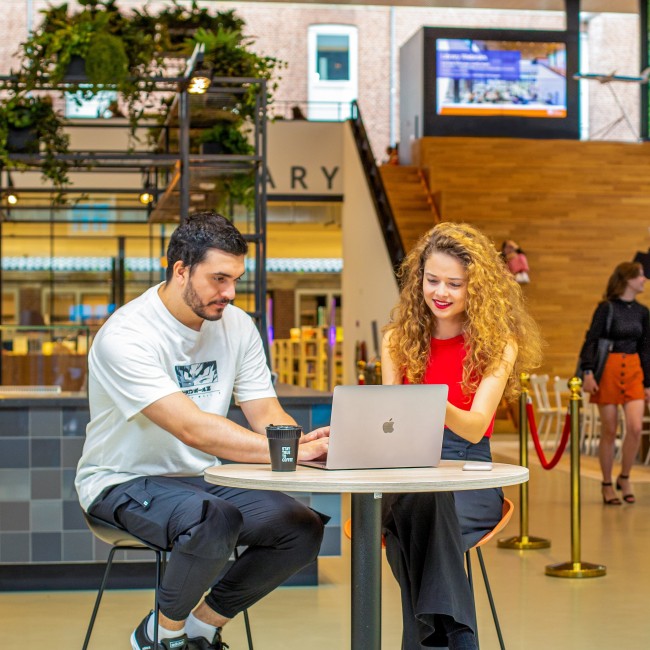
Help with choosing your study programme
Do you want to continue after your bachelor's or further develop your professional skills and are you looking for a master's? Discover, compare and choose your master's programme at BUas.

